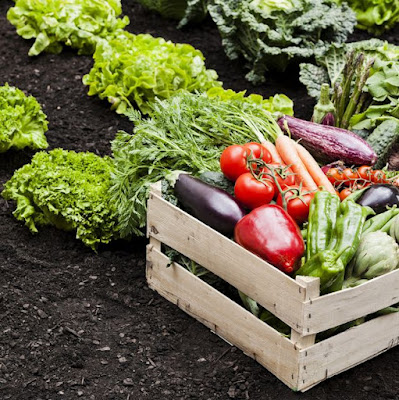How Do They Do It... Growing Your Own Herbs
Embarking on the journey of starting a small-scale herb garden at home is not just about cultivating plants; it's about cultivating an intimate connection with nature and enhancing your culinary creations with the vibrant flavours and aromatic wonders of fresh herbs. In this in-depth guide, we'll delve into each stage of this enriching process, offering a wealth of information to empower you on your herb-growing expedition.
To ensure the success of your herb garden, it's crucial to begin with the right location. Herbs are like sun-seeking enthusiasts, basking in the warmth and energy of the sun. So, your first task is to find a spot that receives a generous dose of sunlight, ideally 6-8 hours of direct sun each day. However, if outdoor space is a luxury you lack, fret not; you can create a thriving herb haven on a sunny windowsill indoors. Remember, it's the sun's rays that fuel the magic of photosynthesis in your herbs, giving them not only life but also their signature flavours and aromas.
The journey continues with the thoughtful selection of your herbs. As a beginner, it's wise to start with easy-to-grow varieties like basil, mint, parsley, rosemary, and chives. These herbs are not only hardy and forgiving but also incredibly versatile in their culinary applications. They are the perfect companions for those who are just embarking on this herbaceous adventure. However, don't limit yourself. As you gain more experience and confidence, you can explore the vast world of herbs, experimenting with exotic and delicate varieties to expand your aromatic palette.
Container gardening, often overlooked, is a fantastic option, especially if you have limited outdoor space or are dealing with less-than-ideal soil conditions. When utilizing containers, make sure they are equipped with proper drainage to prevent waterlogged roots. Container gardening offers you the luxury of total control over soil quality and placement, ensuring your herbs thrive in the best possible environment.
To provide your herbs with the best possible start, invest in high-quality potting soil enriched with organic matter. Herbs thrive in well-draining soil that allows excess water to escape, safeguarding them against the dreaded root rot. Be sure to check that your chosen containers have drainage holes at the bottom, as this is vital for maintaining optimal soil conditions.
Proper watering practices are the heartbeat of your herb garden. Herbs generally prefer slightly moist soil, so it's important to water them when the top inch of soil feels dry to the touch. Overwatering can be detrimental to their delicate root systems, so err on the side of caution and slightly underwater rather than overwater your herbs. This allows them to develop resilience and adaptability.
Fertilization is a subtle dance in herb gardening. These resilient plants don't demand heavy fertilization. Instead opt for a balanced, slow-release fertilizer or enrich the soil with organic compost. The key here is moderation. Applying fertilizers sparingly ensures that your herbs grow robustly without becoming overly pungent or losing their natural character.
To encourage your herbs to flourish and maintain their vitality, regular trimming is essential. Pruning helps prevent leggy growth and encourages a fresh burst of leaves. When the time comes to harvest your herbs, do so when they are at their peak flavour, usually in the morning after the dew has dried. Remember, moderation is key; avoid harvesting more than one-third of the plant at once to ensure continued growth.
As in any garden, vigilance is key. Watch out for common pests such as aphids and caterpillars that can threaten your herb garden's well-being. Combat these intruders with natural remedies like neem oil or insecticidal soap. Another effective strategy is companion planting, where you position herbs that deter pests near other garden plants, creating a harmonious ecosystem.
For those in colder climates, winter poses a challenge to herb enthusiasts. To protect your precious herbs during this frosty season, consider bringing potted herbs indoors to a sunny location. Certain herbs, such as rosemary and thyme, can thrive indoors with adequate sunlight, ensuring a year-round supply of fresh flavours.
Above all, remember that gardening is an ever-evolving learning process. Each setback or mistake is a stepping stone toward expertise. Don't be disheartened by challenges; embrace them as opportunities to refine your skills and deepen your connection with your herb garden. Experiment with different herbs and growing methods, gradually uncovering what works best for your unique conditions and personal preferences.
Finally, revel in the satisfaction of using your homegrown herbs in your culinary creations. Fresh herbs are culinary treasures, elevating the flavours of your dishes and instilling a profound sense of accomplishment. With each snip and harvest, you'll feel a connection to nature that enriches your culinary experiences, making every meal a celebration of your herb-growing journey. Cherish the remarkable process of nurturing herbs from seeds or seedlings to full-grown plants and let the bountiful flavours of your garden infuse magic into your kitchen.









Comments
Post a Comment